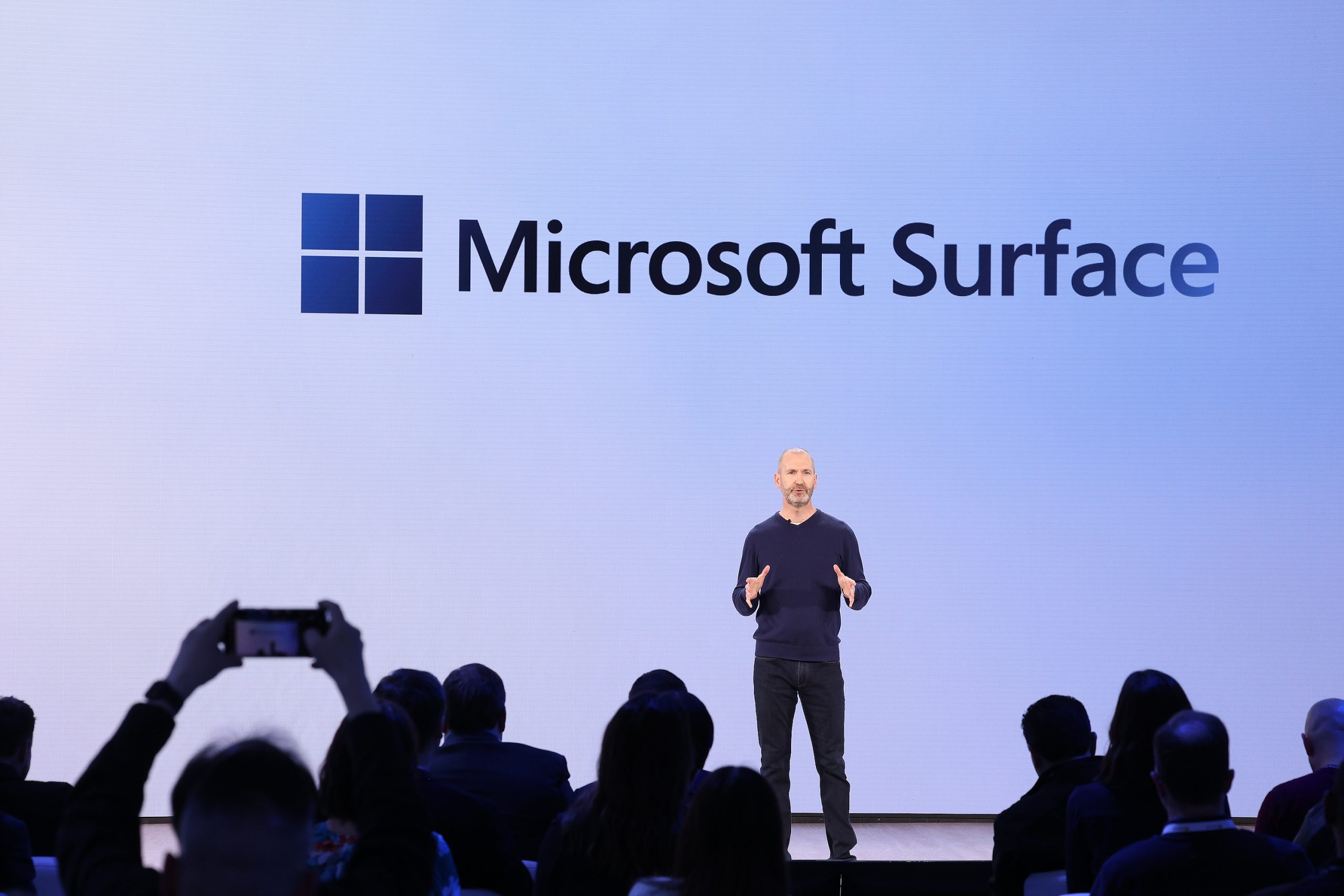Qualcomm’s Snapdragon X Chips Elevate Microsoft’s Surface Range
Microsoft has unveiled its latest Surface devices at a special ‘AI Era’ press event held at its headquarters in Washington state. The new devices, powered by Qualcomm’s cutting-edge Snapdragon X chips, are set to rival the latest Apple MacBooks and iPads.

The spotlight was on two new devices – the Surface Laptop and Surface Pro. In a departure from tradition, Microsoft has dropped numerical suffixes as part of its rebranding strategy under the ‘AI Era’ of AI-driven Surface products.

The new Surface Laptop boasts an impressive battery life, courtesy of the Snapdragon X Elite processor. It promises up to 22 hours of local video playback and 15 hours of web browsing. Microsoft demonstrated Adobe Photoshop and other Creative Cloud apps running natively on the Arm-based processor at twice the speed of Apple’s M3 MacBook Air. The laptop will offer up to 64GB of RAM and up to 1TB of SSD storage, paired with a 120Hz HDR touch display in either 13.8- or 15-inch sizes. It also features USB-A and two USB-C ports, a headphone jack, and a Micro SD card reader. The laptop is available in four colorways: silver, black, blue, and bronze.
On the other hand, the new Surface Pro, which is not the Surface Pro 11, is reportedly a whopping 90% faster than the 2022 Surface Pro 9 5G, thanks to its new Snapdragon chip. It features a high-quality QHD front-facing camera and a rear camera capable of capturing 4K video. Microsoft also highlighted the new accessibility-focused design features incorporated into the keyboard and trackpad.
The Surface Pro will offer up to 32GB of RAM and up to 1TB of storage, along with a 120Hz display with Dolby Vision IQ. An OLED screen option is available at an additional cost. The device comes with Microsoft’s AI-powered Cocreator tool and a new Surface Slim Pen that can be stored in the new ‘Surface Pro Flex Keyboard’ type cover. It also supports triple external monitors via USB-C, making it an ideal device for digital creatives.
Both the new Surface Pro and Surface Laptop will feature Wi-Fi 7 and Bluetooth 5.4, with the former offering optional 5G functionality. They also come equipped with dual studio mics with AI-enhanced ‘voice focus’ and Dolby Atmos speaker support.
These devices fall under Microsoft’s ‘Copilot + PC’ initiative, which sets minimum requirements for new AI PCs and laptops. Copilot + PC mandates 16GB of RAM, at least 256GB SSD storage, and an integrated NPU from either Qualcomm, Intel, or AMD.
The new Surface Pro and Surface Laptop will both start at $999 for the entry-level models, which include 16GB of RAM and a 256GB SSD. Pricing in other regions is yet to be announced.
Sources: Microsoft News & Microsoft Event 2024.
Click here to watch the Microsoft Event
Related Posts

ChatGPT’s Google Search Rival Set to Launch ! – Can SearchGPT Break Google’s Dominance?
A New Era for the Internet? ChatGPT’s Google search rival, SearchGPT, is anticipated to make its debut by the end of this year, marking a significant advancement in OpenAI’s chatbot technology. According to the Press Gazette, Varun Shetty, OpenAI’s head of media, confirmed at a Brussels conference that SearchGPT is expected to be integrated into ChatGPT by year-end. SearchGPT, OpenAI’s AI-driven search engine, is designed to provide quick answers without the need to visit other websites. Users can simply ask, “Did the Kansas City Chiefs beat the Miami Dolphins last night? And if so, who scored?” and get a complete summary of the results. Currently, SearchGPT is in the testing phase, and early reports of its performance have been mixed. The Washington Post’s hands-on review in September highlighted that Google’s AI competitor still requires improvements. Shetty’s announcement that SearchGPT will be available before the end of 2024 indicates that OpenAI has made strides in its development, bringing it closer to competitors like Perplexity and Arc Search. War of the Search Engines The introduction of OpenAI’s search engine could be pivotal in both AI development and the competition for search engine supremacy. Google has long held an unrivaled position, but OpenAI’s advancements could pose a significant challenge. Unlike traditional search engines, SearchGPT responds to queries in natural language and provides sources for its answers, allowing users to easily access full articles. Shetty mentioned, “This is the core experience we’re building. It’s about finding the right balance between users and publishers.” Currently, ChatGPT provides answers without citing sources. The launch of SearchGPT aims to address this concern by enabling users to read original content rather than just receiving brief AI-generated summaries. Using AI on my iPhone 16 Pro Max for web searches with Arc Search has been impressive, but OpenAI’s entry into this arena could be a game-changer. Time will reveal if SearchGPT can truly compete with Google to become the preferred search engine for internet users. End of Article There you go! Now, it’s all revamped and ready to catch the eye. 🎉 Related Posts

Android’s Find My Device: A Compass Tool and UWB Support on the Horizon
In the ever-evolving world of smartphone features, the race to enhance device tracking capabilities has taken center stage. Android’s Find
